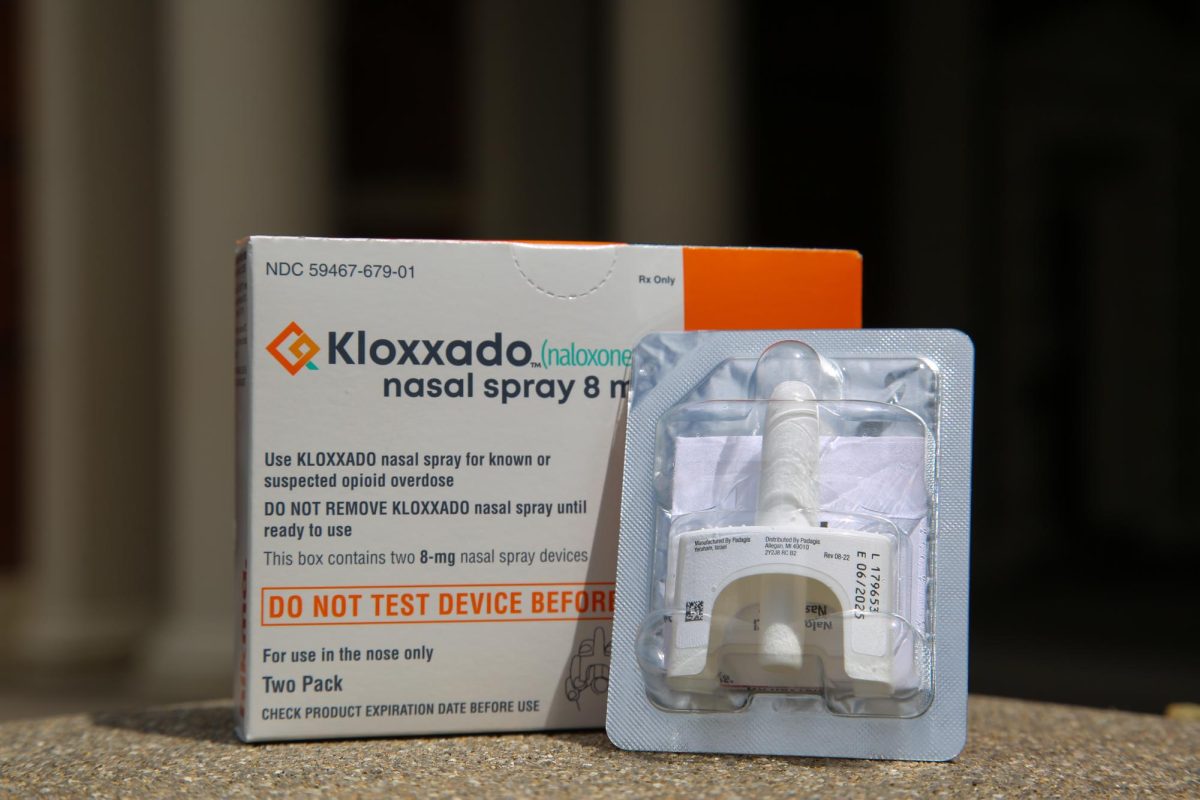NARCAN, a life saving narcotic spray, will become available to residence halls in fall 2024 due to a bill passed by student government and the Resident Hall Association.
The resolution known as the RHA-ASOSU Narcan Act was passed by Associated Students of Oregon State University in January 2024 and will be able to take effect this fall. The goal of the legislature is to decrease narcotic overdoses and incidents.
The NARCAN specificity chosen is naloxone, defined by the Center for Disease Control “as a life-saving medication that can reverse an overdose of opioids — including heroin, fentanyl and prescription opioid medications.” It is administered nasally.
NARCAN in nasal spray form is easy to learn to use, spraying one to three sprays in each nostril every two to three minutes until patients respond. It is important to correctly train resident assistants and other staff on proper techniques.
Naloxone will be located in every residential hall.
“Training on the use of naloxone is slated to be implemented during our traditional residence hall Student Staff Training in the weeks leading up to fall opening,” said Drew Morgan, director of residential education at University Housing and Dining Services, in an email.
The medicine will be stocked and stored safely with other first-aid materials and provided by Student Health Services. According to Morgan, it will be stocked regularly.
“We’re making naloxone available in residence halls as an additional precautionary measure given the continuing opioid pandemic,” Morgan said.
He explains that it is still an individual responsibility and public safety officers will still carry the drug.
“UHDS’s work on providing the opioid-overdose antidote naloxone in residence halls began the summer of 2023 with research into the trends and conversations with colleagues in the Department of Public Safety and Student Health Services,” Morgan said.
Morgan said that there has been one known use of NARCAN on OSU’s campus.
“We hope that the naloxone we stock in residence halls is never needed or utilized,” Morgan said.
A study done in San Francisco by The National Institute on Drug Abuse cites that of 399 overdose events that used naloxone, 89% were reversed.
Opioid-related deaths are a national issue, with almost 108,000 deaths due to unintentional drug overdoses nationally in 2022, according to the National Institute of Health.
From the Oregon Health Authority’s Opioid Overdose Public Health Surveillance Update, Oregon alone saw 1,392 unintentional opioid overdose deaths in 2023.
The opioid epidemic was prevalent during the debate and passing of this bill in January 2024 and still is now. The resolution cites Oregon as the second highest in the nation for drug use-related deaths, with opioid-related deaths accounting for 73% of these deaths.




















































































































